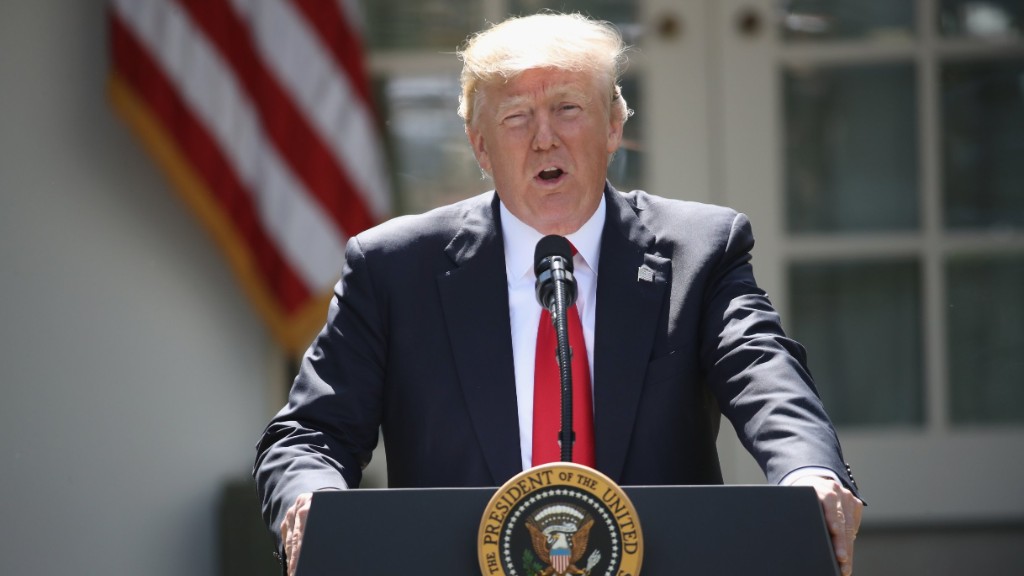
When President Donald Trump arrived in the Rose Garden on Thursday afternoon to explain his decision to withdraw the United States from the Paris climate accord, all major broadcast networks carried the announcement live. Ditto for the three big cable channels. The announcement also prompted banner headlines on the homepages for the New York Times and Washington Post.
And just like that, with a decision that environmental advocates find abhorrent, Trump made climate change something it hasn't been in a long time: the top story.
"You didn't hear him talking about this stuff in the general election," said Jeremy Symons, an associate vice president at the advocacy group Environmental Defense Fund. "I think this is news to a lot of people. I think people are tuning in for the first time."
Environmentalists have long lamented the dearth of media coverage generated by an issue considered by many to be of utmost consequence. But Trump's decision drew wall-to-wall coverage, thrusting climate change from the periphery and into the spotlight.
"When the President of the United States sets the country apart from science, breaks its promise to the rest of the world, retreats from the fight against climate change and leaves our kids to pay the price, that's news," said Rhea Suh, the president of the Natural Resources Defense Council.
"This story, though, won't go away," Suh added.
For years, the liberal watchdog Media Matters has tracked how much the broadcast networks have covered climate change.
In 2009, the group reported that ABC, NBC, CBS and Fox covered it for a total of 205 minutes on the nightly newscasts and Sunday morning talk shows. The issue hasn't generated that much coverage since, and Media Matters found that the two presidential election years rank among the lowest in that period.
In 2012, the broadcast networks covered climate change for 67 minutes. Last year, it fell to 50 minutes. Coverage of climate change fell by 66% from 2015 to 2016, according to Media Matters.
The issue's near absence in the 2016 campaign was particularly galling for advocates. Moderators did not ask Trump and Hillary Clinton a single question about climate in the three presidential debates last fall. The same went for the lone vice presidential debate between Mike Pence and Tim Kaine.
"For Secretary Clinton's part, I think she did talk about it," Symons said. "The media never asked the questions."
Trump has long been a climate change denier, a position that predates his political career. He vowed to "cancel" the historic Paris agreement -- which was signed by 195 countries -- shortly after becoming the presumptive Republican presidential nominee last spring. But after winning the election in November, Trump said he had "an open mind" on the accord.
Under President Obama, the U.S. formally entered the Paris agreement in September. But at that time, with the 2016 campaign reaching the home stretch, climate change had become an afterthought on the campaign trail.
Symons wondered if that might have something to do with Obama's actions.
"Because President Obama was leading on climate change, people started taking for granted that we were doing our part," he said. "This is a wake up call that we're going to have to fight. That may have bled into the election as well."
But Symons predicted that won't be the case the next time voters go to the polls.
"I bet in the next election this is a big issue," he said. "I can't imagine going the next election without this coming up."


